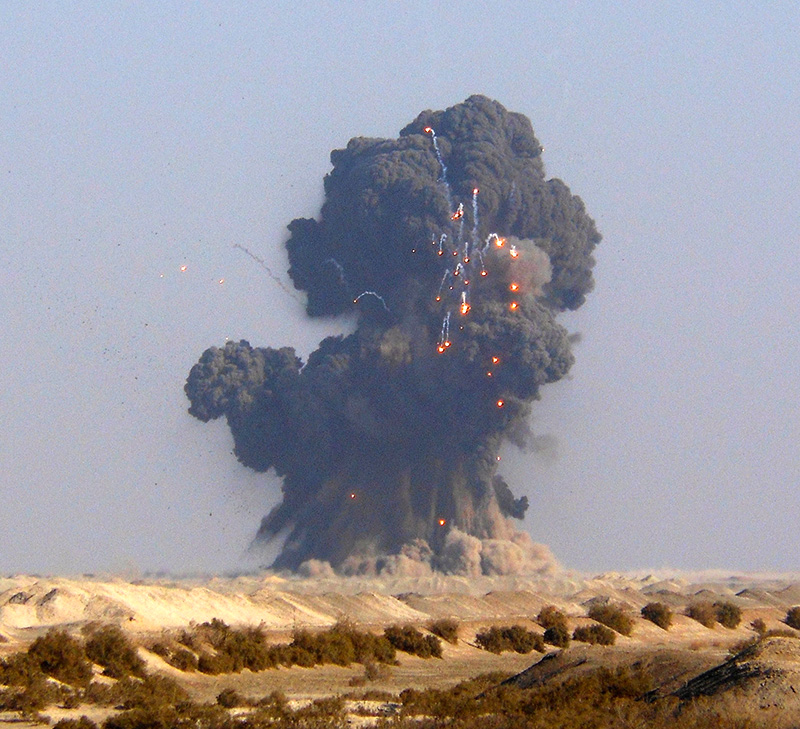Marine geophysicist Giacomo Cocchi
Marine geophysicist Giacomo Cocchi takes part in the acquisition & interpretation of data for geophysical surveys including UXO surveys.
Giacomo Cocchi’s educational background is in geosciences, he has a BSc in geology and an MSc in Geology and Geophysics. He also has significant experience in the interpretation and processing of seismic, magnetic and gravimetric data, and is the latest addition to SafeLane’s amazing marine team.
Why did you choose to join SafeLane Global?
After my MSc I received a number of offers for Geoscientist and Geophysicist roles – but by far the most interesting company that made me an offer was SafeLane.
I was looking for a technical role that required the application of different software packages, but also something that would not confine me to the office – and where I could work and make a difference.
Speaking to the marine department team pre and post-interview reinforced my feeling that joining SafeLane was an excellent decision career-wise.
Can you explain a little about your role as a a marine geophysicist?
As a Marine Geophysicist, I take part in the acquisition and interpretation of geophysical data: the SafeLane marine department has the capabilities to perform a full UXO marine survey, from seabed mapping (SSS and multibeam) to location and mass modelling of magnetic or acoustic targets (magnetometer and UHR seismic surveys).
We use our bespoke integrated software solution (AGS) as well as other industry standard software such as Oasis Montaj, SonarWiz, QINSy and different GIS packages.
I would say the job is a fair split of office and field work. As of now I have spent about 1/3 of my time offshore and 2/3 in the office but the ratio varies a lot depending on a project’s type and scale.
I occasionally take part in surveying and data processing with the land department as well.
What training / courses / qualifications are you doing at SafeLane?
You receive training on the main processing, navigation and acquisition software; there is also plenty of time for self-learning. Being able to work across multiple software platforms is key to obtain the information you want and to produce good deliverables.
You also familiarise quite quickly with the more practical aspects, as often you will have to assemble or reconfigure a piece of equipment while offshore.
Certifications-wise, I have completed the BOSIET offshore survival training that qualifies me to perform offshore duties in most countries; I have also acquired a CSCS certification that allows me to access most building sites across the UK and carry out land surveys.
What is the best thing about working for SafeLane's marine team?
There is a great camaraderie at the SafeLane office in Gillingham: the working environment is friendly and fairly laid back most of the time, but we need to be ready and focused when a job comes up.
Even as a junior, your input is valued, and you are given responsibilities from day one.
As we often have projects abroad, you get to travel and see interesting places, and most importantly you learn to work with people from different cultural and linguistic backgrounds, which is a key skill in this line of work.
An additional point of interest for me as a history enthusiast, is the way the job relays to the history of conflicts and the awareness of geopolitical events, both past and present.
What would you say to anyone who might want to get into this industry?
Near-surface marine geophysics is a growing field and it finds many applications within the geohazards and UXO risk mitigation arenas. Whether you are a geophysicist, a hydrographic surveyor or a marine scientist, working with SafeLane offers great opportunities for career development and travel.
One thing about SafeLane is that you can take part in virtually every stage of the survey process, from survey planning to acquisition, processing and reporting. You must be flexible with your schedule and versatile with computers; having some coding skills does not hurt.
How was your recent experience on project in Vietnam?
During the Vietnam project I was essentially tasked with navigation, acquisition and quality control of the raw data from Side Scan sonar and TVG (Transverse Gradiometer).
We worked closely with an in-country company that provided us with their priceless local knowledge and logistics support.
This being our first job in Vietnam, we had to deal with different technical and logistic issues.
From a technical standpoint, the particular orientation of the magnetic field in Vietnam put new operational constraints on the magnetometers; the sensor configuration and the survey planning had to be adjusted accordingly.
The main logistic limitations were weather, tides, as well as the traffic and fishing gear within the survey area: while the former two are somehow foreseeable, fishing activity is largely unpredictable; further to that, the communication between vessels in rural areas is often rudimental.
To deal with all this, and to maximise efficiency we adopted a flexible approach, skipping the areas that were temporarily occupied and using the tides to our advantage; modifying the configurations of the TVG frame, for example by adding buoyancy to it in a way that would both increase stability and facilitate altitude control.
The efficiency of the survey team on-site as well as the ongoing support from our UK office were crucial in order to deliver excellent quality data with a good timing.
For your next project, contact SafeLane


